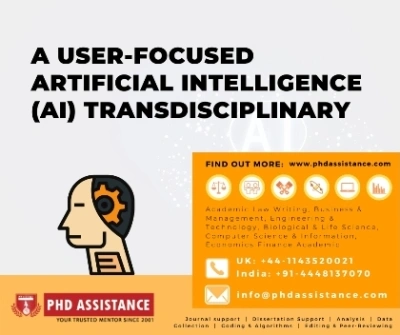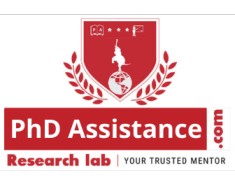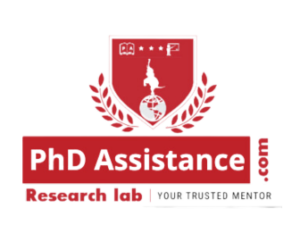A user-focused Artificial Intelligence (AI) Transdisciplinary Study Strategy-Supported Health Technology Management
When it comes to managing Healthcare and/or a Hospital setup, there should be some coherence in the way things work. Hospital and healthcare management is not about mere handling of internal and external affairs, but it also involves a timely look into the processes and getting results that are satisfactory to all the parties’ patients, physicians, care specialists and other medical professionals.
Stating these, technology is the backbone to any healthcare management facility. However, there are specific innovations brought in the field of medicine and one such interesting and highly appreciable application is that of Artificial Intelligence (AI).
A healthcare committee (Arney et al., 2019) that runs under the control and processes of Artificial Intelligence holds a significant value towards a positive approach to medicine and caretaking. Furthermore, Artificial Intelligence improves the total health outcome with a neat clinical workflow. But there are some challenges to face during this process.

When it comes to AI-enabled health facilitation, some concerns arise due to:
- Data security and information privacy
- Speedy and quality delivery of services
- Effective and sustainable management
- Medical paternalism
- And a few more technical aspects
To achieve a fine system and also to resolve the mentioned issues and more, a generic, unified project is needed. This approach is the ‘transdisciplinary’ agenda of AI-operated healthcare. As the name says, the core of this approach is to perform healthcare and any other medical administration by using a cohesive and collaborative design that gives stakeholders a stronghold of their management positions (transdisciplinary – interdisciplinary). Below are some of the interesting features and options worth reading about Healthcare Management and the transdisciplinary approach of AI-medical governance.
- But before that, why prefer only Artificial Intelligence for healthcare governance? As a direct solution, many artificially intelligent tech-gadgets can effectively change and develop our environment around subtly. Healthcare governance with the support of Artificial Intelligence enables everyone to get data that is both relevant and ration on multiple terms! Let’s move on.
How good is Artificial Intelligence for healthcare and wellness?
By enabling data-based technologies (john C. Hower, 2020) for healthcare and medicine, patients can avail quality medical support for living healthier and meaningful living. But due to the high level of technology sources, there is only a small gap between mining a customer’s data for a commercial purpose.
- Some of the examples of gathering this data from our gadgets include instances where you download a mobile application for tracking your water consumption level or to coach your health level through wearable devices.
On a positive note, there is also a good number of benefits to gain from using Artificial Intelligence for Health/Medical tech governance.
Besides the advantage of helping someone understand the societal challenges and practises in the field of medicine, AI-enabled healthcare governance additionally offers insights on developing new medical capabilities and therapeutic systems for patients.
Therefore, it is a fact that Artificial Intelligence is more of a double-edged sword, that can give end which might be positive or negative for a user.
The top 4 benefits that you can get using the Artificially Intelligent medical system
Artificial Intelligence is a transformational power for the medical world. From risk management to quick and efficient medical diagnosing (Bresnick, 2018), there are a few benefits to gain using the transdisciplinary approach of medical tech governance. The following perks are the top 4 advantages of the same:
- Radiology tools such as X-ray machines, computed tomography (CT), and many other non-invasive resources are possible through Artificial Intelligence’s medical governance.
- Resistance to antibiotics is a growing risk factor in several global hospitals. Yet, with accurate use of AI-enabled medical protocol, the data of patients can be stored and alerted when needful using electronic health records (also called electronic medical records – EMR).
- Immunotherapy is one of the best and highly promising treatment options considering the recovery of many forms of melanoma. Machine learning prototypes along with AI-powered information biometrics can create new developments in delivering immunotherapy and other cancer-related target remedies.
- Even your smartphone can be an effective tool to notice facial mishaps and any other craniofacial abnormalities. Combining the idea of interdisciplinary management and Artificial Intelligence, physicians and technical experts are already working on projects that help in early detection of facial issues through as simple as taking a selfie from your smartphone!
Want to know some real-time applications (UnfoldLabs, 2017) of AI in healthcare, that are already in use?
Check out the following:
- No need to go for a cataract operation when you can use eye drops to resolve your problem by dissolving it.
- Reduce your impact of headache using an implant that will send electrical signal pulses as a control mechanism.
- For healing your wound quickly, get yourself a replica of your blood vessel or even your organ, using the booming technology of 3-Dimensional printing (3D).
- Adjust the dosage of your insulin levels using artificial pancreas, which will send glucose-sugar at the right levels and at the right time.
- Robots will now perform critical medical surgeries and mimics human interaction, apart from its emotion detection capacity and natural language processing data facility.
By resolving the issues related to security and decentralization, medical and healthcare pertinent domains have a long and successful way of delivering the best therapeutic approaches, as per one patient’s needs and deeds.
Now, moving onto the most interesting part, let us end our learning about the transdisciplinary approach of AI-enabled medical tech governance with hopes for a better future (Buch et al., 2018) through the following excepted application for all of us:
- A spoken dialogue will automatically get converted into summary letters, easing the process of both the physician and patient. Save the time spent inside consultation rooms as well.
- The one-size-fits-all prototype will not be the case. From diagnosis to treatment, every medical step will be assessed and delivered, according to individual necessities.
- Instant analysis of your medical reports and suggestions will be sent from 1 physician to another specialist, right before you. Therefore, your recovery is also faster.
Thinking of the impact of Artificial Intelligence in the fields of medicine, who might guess, even your healthcare management Dissertation Research Proposal Service/Help can turn into a useful resource to the society!
Let us join hands for a healthy, affordable, sustainable, and effective future.
References
- Arney, D., Senges, M., Gerke, S., Canca, C., Ihle, L.H., Nathan, Kaiser, Sujay Kakarmath, A.K., Ashveena Gajeele, S.L., Luis & Melendez (2019). A User-Focused Transdisciplinary Research Agenda for AI-Enabled Health Tech Governance. [Online]. Available from: https://cyber.harvard.edu/sites/default/files/2019-02/2019-01_aihealth.pdf?
- Bresnick, J. (2018). Top 12 Ways Artificial Intelligence Will Impact Healthcare. [Online]. 2018. Available from: https://healthitanalytics.com/news/top-12-ways-artificial-intelligence-will-impact-healthcare.
- Buch, V.H., Ahmed, I. & Maruthappu, M. (2018). Artificial intelligence in medicine: current trends and future possibilities. British Journal of General Practice. [Online]. 68 (668). p.pp. 143–144. Available from: http://bjgp.org/lookup/doi/10.3399/bjgp18X695213.
- john C. Hower (2020). Artificial Intelligence for Business. [Online]. 2020. Available from: https://online.wharton.upenn.edu/ai-business/?utm_campaign=search_northeast_states&utm_medium=cpc_desktop&utm_source=google&utm_term=%2Bartificial %2Bintelligence&utm_content=428946974352&gclid=EAIaIQobChMIr5DHgp_q6AIVRyUrCh29_wrhEAAYASAAEgIyO_D_BwE.
- UnfoldLabs (2017). The Impact of Artificial Intelligence in Healthcare. [Online]. 2017. Available from: https://medium.com/@Unfoldlabs/the-impact-of-artificial-intelligence-in-healthcare-4bc657f129f5.



